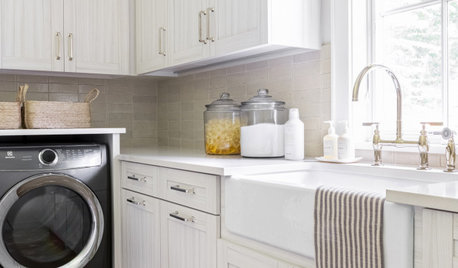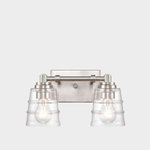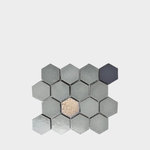Meal planning
nhrdls
9 years ago
Related Stories

ENTERTAININGGot Hand-Me-Down Dinnerware? Make a Memorable Meal
They might be mismatched and not your style, but those inherited plates and forks can help bring meaning to your table
Full Story
DINING ROOMSFreshen Up Your Dining Room to Savor Meals More
If drive-through dining or a TV companion is your daily deal, you might just need a dining room worth spending unhurried time in
Full Story
ARCHITECTUREOpen Plan Not Your Thing? Try ‘Broken Plan’
This modern spin on open-plan living offers greater privacy while retaining a sense of flow
Full Story
HOME TECHHarness the Cloud: 8 Ways to Automate Your Housekeeping
Make life easier by scheduling regular deliveries, managing appliances, simplifying meal planning and more via the web
Full Story
ORGANIZING7-Day Plan: Get a Spotless, Beautifully Organized Kitchen
Our weeklong plan will help you get your kitchen spick-and-span from top to bottom
Full Story
HOUSEKEEPING7-Day Plan: Get a Spotless, Beautifully Organized Dining Room
Give us a week and we’ll give you a dining room you’ll be happy to use for a special occasion or every day
Full Story
MOST POPULARIs Open-Plan Living a Fad, or Here to Stay?
Architects, designers and Houzzers around the world have their say on this trend and predict how our homes might evolve
Full Story
STANDARD MEASUREMENTSKey Measurements for Planning the Perfect Dining Room
Consider style, function and furniture to create a dining space that will let you entertain with ease
Full Story
HOUSEKEEPING7-Day Plan: Get a Spotless, Beautifully Organized Living Room
A task a day sends messes away. Take a week to get your living room in shape
Full Story
LAUNDRY ROOMS7-Day Plan: Get a Spotless, Beautifully Organized Laundry Room
Get your laundry area in shape to make washday more pleasant and convenient
Full StoryMore Discussions






pskvorc
mendopete
Related Professionals
New Mexico Landscape Architects & Landscape Designers · Roosevelt Landscape Architects & Landscape Designers · Buford Landscape Contractors · Belmont Landscape Contractors · Little Ferry Landscape Contractors · Santa Ana Landscape Contractors · Smyrna Landscape Contractors · South Lyon Landscape Contractors · Woodbury Landscape Contractors · Yuba City Landscape Contractors · Palos Heights Landscape Contractors · Chatsworth General Contractors · Little Egg Harbor Twp General Contractors · Norristown General Contractors · Overlea General Contractorspskvorc
dzignr_tastz
Joyousfree
pskvorc
dzignr_tastz
dzignr_tastz
Joyousfree
sbryce_gw
Jasdip
dzignr_tastz
11otis
pskvorc
11otis
Joyousfree
pskvorc
Jasdip
pskvorc
mendopete